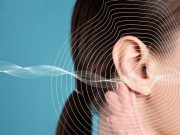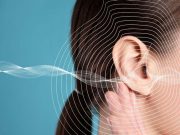Tag: Dizziness/Vertigo
Triple Semicircular Canal Plugging Effective for Advanced Meniere Disease
Control of vertigo comparable to that of labyrinthectomy, with greater preservation of hearing
History of Gout Tied to Risk for BPPV, Meniere Disease
No significantly increased risk for vestibular neuronitis seen for patients with gout versus controls
Electrocochleography Can Predict Symptom Improvement in Vestibular Migraine
Combining vestibular migraine clinical criteria with AUC ratio of summating potential, action potential curves on ECoG predicts symptom improvement
Web-Based System Works Well for Diagnosis, Treatment of Recurrent Vertigo
Recurrent benign paroxysmal positional vertigo resolved for 72.4 percent of patients using web-based system
Risk for Persistent Postural Perceptual Dizziness Increases With Vestibular Conditions
Vestibular migraine plays key role in precipitating PPPD as a single comorbidity or component of multiple vestibular comorbidities
Measuring Vertebral Arteries Can Clarify Pathology of Transient Vascular Vertigo
Different results of MV ratio and cVEMP seen between TVV cases with and without central nervous system symptoms
Manifestations of Vertigo Described in Pregnancy
Pregnancy can exacerbate certain conditions, including Meniere disease and benign paroxysmal positional vertigo
Considerable Medical Costs Associated With Recurrent Vertigo
Large differences noted in mean adjusted annual payments/direct costs across groups
Anxiety, Depression Scores Up in Meniere Disease, Vertigo
Anxiety score and anxiety severity higher for those with Meniere disease versus those with benign positional paroxysmal vertigo
Dizziness, Vertigo Linked to Increased Risk for Migraine
Risk for migraine and other types of headache higher in the dizziness group than the vertigo group














